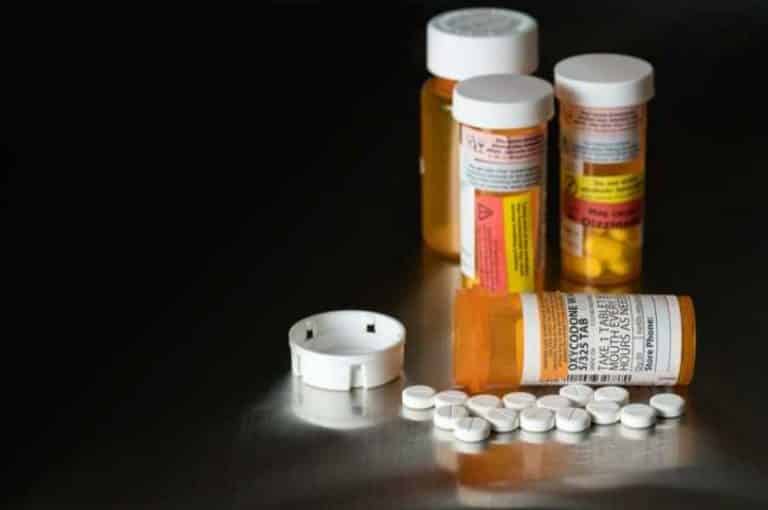The Opioid pandemic is sweeping the nation and becoming an increasingly large issue. While many are fighting to stop addiction, those who are using may find themselves experiencing many adverse side effects.
If you’ve read this far, you’re probably wondering, does codeine cause constipation? We’re here to let you know that codeine constipation is very real and extremely uncomfortable.
Below we’re going to provide you with some more in-depth information that you need to know to educate yourself about constipation caused by Codeine.
What is Codeine?
Have you ever heard a song that talks about drinking a purple drink? What the person in the song is talking about is drinking cough syrup, otherwise known as Codeine.
Codeine is commonly used to treat things like a persistent cough or pain. Unlike many other substances that are abused, you’re only going to find Codeine under this one name and is usually prescribed by a physician with specific instructions on how to take it.
Some of the most common side effects that users may experience after taking codeine include:
- Increased drowsiness
- Dizziness
- Decreased blood pressure
- Nausea
- Constipation
Many doctors will tell you that while Codeine is specifically used to aid in recovering from things like the flu, it’s very addictive. Especially in cases where the person using it isn’t using it how it’s been prescribed.
When Codeine is being taken more than it should or abused, it can lead to constipation. Other substances that can also cause constipation would include hydrocodone as well as morphine.
Constipation can not only be uncomfortable; it can also be painful if the issue isn’t solved sooner rather than later.
How to Treat Codeine Constipation?
If you or someone you know isn’t taking Codeine for medical reasons and are, in fact, abusing the substance, the best thing that you can do is stop taking it. Constant abuse of Codeine can lead to a host of issues that no one wants to deal with.
Not to mention withdrawing from the substance can cause pain in one’s muscles and the stomach and other symptoms. If you’re looking for help it would be best to look into things like detox and addiction treatment.
Here are some of the most common ways to treat codeine constipation. Most of them are over-the-counter treatments, but you’ll still need to obtain a prescription from a doctor to receive the medication, depending on where you live.
Stool Softeners
The purpose of a stool softener is exactly as the name implies; it’s a liquid that can be taken to help soften a person’s stool. Once you’ve ingested the stool softener, it works by increasing the amount of moisture that is present in a person’s stool.
Once the moisture in the stool has increased, it’s supposed to make it easier for you to pass the stool. The stool softener’s purpose is to help you have a bowel movement without straining to do so.
Depending on how much you’ve taken and your body, a stool softener can begin working within 30 minutes or take longer. Several types of stool softeners can be purchased from your local pharmacy, but if you find that you’re still struggling with having a bowel movement, you’ll need to speak to your primary care physician.
Laxative Suppository
Suppositories are not high up on people’s list when suffering from constipation, but it’s effective in rectifying the issue. A suppository is a medication that you insert into the rectum.
Once it’s been inserted into the rectum, it will help pull water present in the bowels towards the stool. Much like the stool softener, as the water is attracted to the stool, it will begin to soften, making it easier to have a bowel movement.
Fiber-Rich Foods
If you’re not someone that enjoys taking medication, some foods can be taken to help relieve constipation. Foods that are high in fiber are not only fantastic for your health, but they will also assist in helping you have regular bowel movements.
There are tons of fiber-rich foods that you might try that will fit within any diet plan. Think about incorporating more leafy vegetables and fruit into your diet. Some food that is higher in fiber than others include lentils, whole-grain foods, and dried fruits.
Drink More Water
It’s recommended that people drink eight glasses of water a day. Drinking water helps increase the amount of energy you have, helping you stay hydrated.
Not only does it do all of these things, but the increased hydration also makes it easier for your body to get through the digestion process and move waste out of the body. In other words, drinking water is key when you’re trying to relieve the constipation that you’re struggling with.
All of these things are helpful, but if you continue to abuse Codeine, the problem will only continue to persist. Therefore, the only way to solve the issue is to stop using it.
Codeine Constipation: Putting the Toilet to Good Use
Codeine constipation is not a silly name that we’ve made up; it’s real and happens when you use Codeine more than you should. There are tons of ways to relieve this, including drinking more water or taking some over the counter medications that will help loosen the stool.
If you find that you or someone you love has a problem with substance abuse, contact us here at New Leaf Detox & Treatment Center. We offer several levels of care, therapies, and unlimited resources for people that are seeking help.
Let us be there for you and help you take the next step towards a healthier lifestyle.



